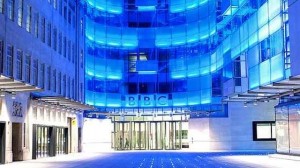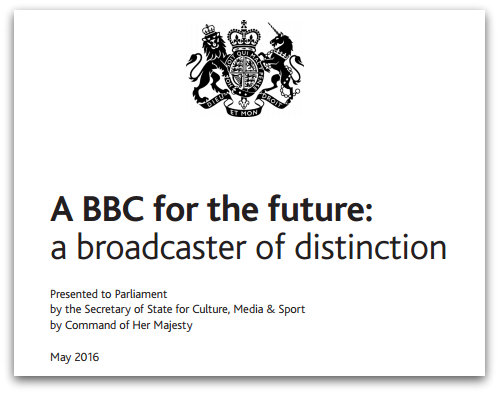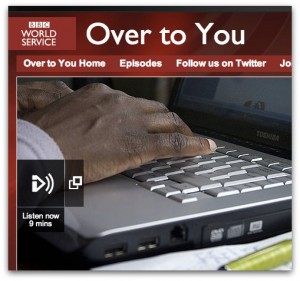Culture Secretary, John Whittingdale, has made public the UK government’s plan for the future of the BBC, which among other things, will now include Ofcom regulation.
The BBC Trust will also be dissolved and the BBC will have a new unitary board comprised primarily of members independent of the government.
The plan includes major structural changes to the BBC–indeed, possibly some of the most sweeping changes in the corporation’s history. Most major UK/European news outlets will report on this today.
Of course, I was very curious where the BBC World Service would fall in terms of priority. Based on what I’ve read in the report, there will be a serious effort to “protect” the World Service. The following excerpt from the report outlines the plan:
(Source: A BBC for the future: a broadcaster of distinction)
 Prioritising funding and protecting the World Service
Prioritising funding and protecting the World Service
The decisions that the BBC makes in allocating funding between services will have important consequences for the overall distinctiveness of the BBC. In radio, budgets have a broad spread across the wide range of services.
This is not the case in television where BBC One receives a far greater concentration of funding (see box 19). While of course the BBC needs to invest in its flagship services, the BBC board will need to give careful consideration to its service-level funding decisions.
Matching investment to the strategic priorities for the BBC is generally a matter for the BBC board. But there is one area so critical to the public interest role of the BBC that it is appropriate for the Charter to be more directive. The World Service is one of the BBC’s most distinctive services.
It is hugely valued by audiences and a vital part of the UK’s ability to lead the world in terms of soft power and influence, with its reach and reputation helping to project UK’s cultural and democratic values to more than 246 million people worldwide.
The government will therefore ensure that the BBC protects licence fee
funding for the World Service at its current level of £254 million
per annum.
The BBC will also receive additional funding from the government for the World Service of £34 million in 2016/17 and £85 million a year in the three subsequent years, a significant proportion of which will be Official Development Assistance. As a provider of accurate, impartial and independent news the BBC World Service helps to strengthen democratic accountability and governance, and promote Britain and our values around the world.
The languages in which the World Service operates, and the objectives, priorities and targets of the World Service will continue to be agreed with the Foreign Secretary.
BBC World News is the prime means by which the BBC distributes its television news and current affairs programmes to international audiences. But it does not have the same reputation for quality as the World Service – which is renowned for its radio output. This is in part a question of funding: BBC Global News, the commercial subsidiary that operates the service, had revenues in 2014/15 of just £94 million, less than 10 per cent of the revenues of BBC Worldwide, and a staff of just 120. The BBC must ensure that all its prominent international services have a reputation for delivering high quality, distinctive output. The new unitary board should therefore consider what reforms are needed to improve the quality of BBC World News.
I’ve skimmed the full report and found no specific mention of shortwave radio broadcasting (no surprise). I’m certain the BBC will continue to broadcast over shortwave to strategic regions of the world in the short-term, but over time will certainly decrease offerings.


